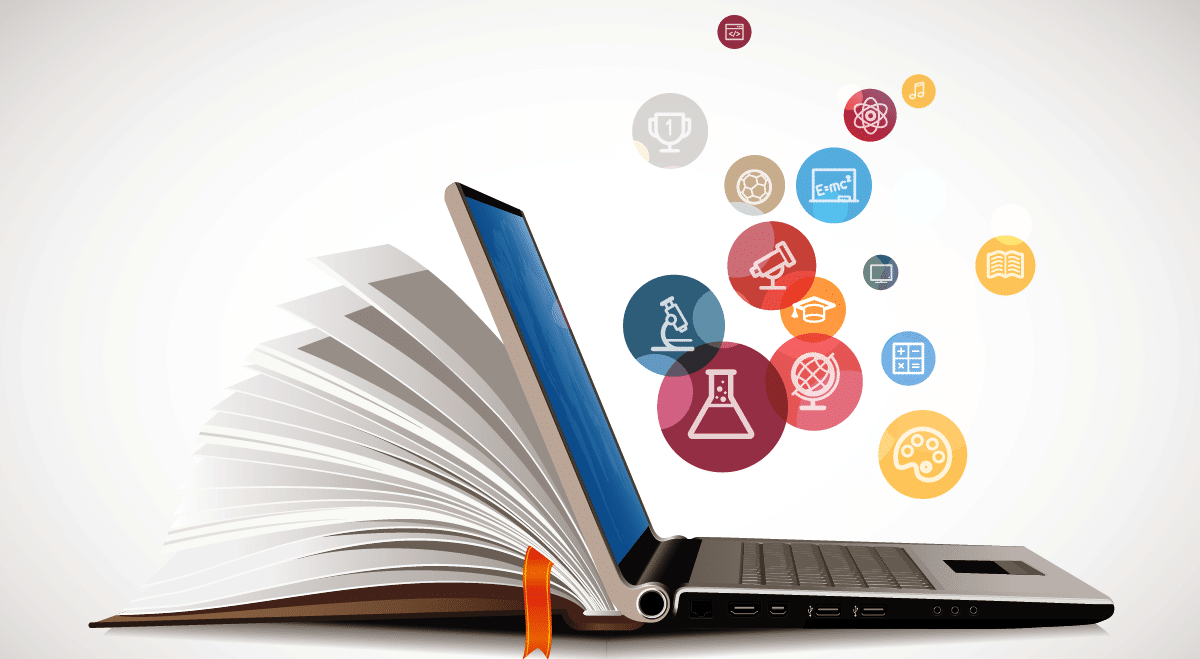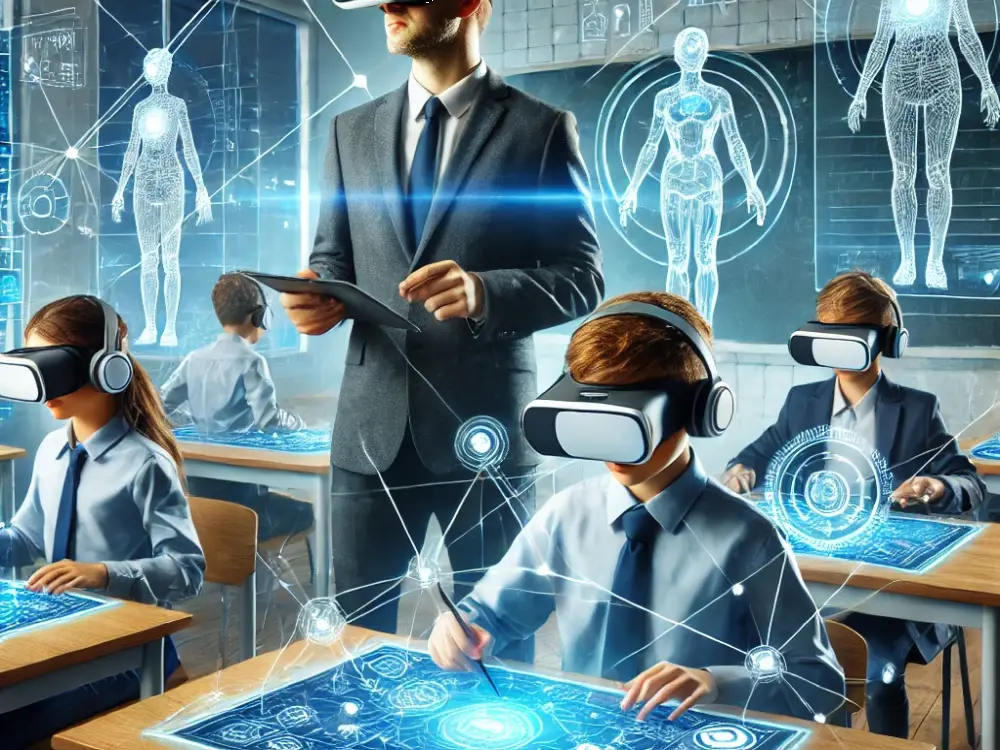Essential Resources for Institutions to Improve Their Technique to Modern Technology Education And Learning
As organizations strive to enhance their innovation education and learning frameworks, the recognition and implementation of important resources end up being vital. Ingenious curriculum styles that integrate technology, along with effective on the internet discovering systems, can substantially broaden academic access and engagement.
Innovative Educational Program Layouts
In today's swiftly evolving technological landscape, educators are significantly identifying the requirement for innovative curriculum layouts that successfully integrate technology into learning experiences. This combination is necessary for preparing trainees for a future where digital literacy is extremely important. Cutting-edge educational program layouts incorporate various instructional techniques, ensuring that innovation offers as a tool for enhancing involvement and assisting in much deeper understanding.
One effective strategy is project-based understanding (PBL), where students participate in real-world issues, using modern technology to research, team up, and provide their findings. This method not just promotes crucial thinking however additionally encourages the development of soft skills such as synergy and communication. In addition, flexible discovering innovations can individualize the academic experience, catering to private understanding styles and rates.
Furthermore, interdisciplinary methods that mix topics, such as combining science and innovation with the arts, aid develop a much more alternative knowing setting. This fosters creativity and development, furnishing students with the skills required to grow in a complex, interconnected globe. Inevitably, cutting-edge educational program designs are important for cultivating a generation of learners who are not just skillful in innovation but are also adept issue solvers and vital thinkers.
Online Learning Operatings Systems
Many educators are transforming to online knowing platforms as essential tools for improving instructional availability and involvement. These platforms assist in a hybrid knowing environment that accommodates diverse discovering designs and speeds, making education a lot more comprehensive. They use a variety of sources, consisting of video lectures, interactive simulations, and conversation forums, enabling trainees to gain access to content from anywhere at any type of time.
Noticeable online discovering platforms, such as Coursera, edX, and Moodle, offer institutions with the infrastructure needed to deliver top quality innovation education. These systems can be customized to line up with particular educational program goals and instructional strategies, making sure that establishments can keep their instructional requirements while leveraging digital resources.
Furthermore, online discovering platforms sustain collaboration amongst instructors and students, cultivating a sense of community and shared discovering experiences. Advanced analytics tools readily available on these platforms permit instructors to track student progression and interaction, assisting in timely interventions when needed.
Specialist Development Opportunities
Continual specialist growth is critical for teachers seeking to stay abreast of arising technologies and pedagogical methods in a rapidly developing instructional landscape (Education). To successfully integrate technology into the class, teachers need to proactively pursue opportunities that enhance their abilities and knowledge
Establishments need to focus on providing seminars, training courses, and workshops concentrated on the current technological improvements and training approaches. These programs can address different facets of technology education, including coding, digital proficiency, and making use of educational software application. In addition, partnering with regional universities and tech organizations can give instructors access to specialized training and resources.
Online specialist development systems likewise offer versatility, allowing instructors to participate in self-paced understanding. Webinars and online seminars can assist in knowledge sharing amongst educators worldwide, fostering an international perspective on modern technology integration.
Furthermore, mentorship programs can attach seasoned educators with those new to innovation, Education advertising joint discovering and assistance. By producing a society of constant understanding, organizations can equip educators to accept innovative training strategies, ultimately improving student interaction and success in innovation education. Purchasing professional advancement not just benefits instructors but likewise significantly enhances the finding out experience for pupils.
Collaborative Tools and Resources
Reliable combination of innovation in education also counts on using collaborative tools and sources that promote interaction and synergy amongst educators and students. Such tools boost interaction and foster a culture of cooperation, important for modern knowing atmospheres. Platforms like Google Work Area and Microsoft Teams make it possible for real-time record sharing, job administration, and smooth interaction, permitting groups to interact properly no matter geographical barriers.
Furthermore, finding out management systems (LMS) such as Canvas and Moodle give structured atmospheres for partnership, where instructors can create online forums, designate group jobs, and promote conversations. These systems not only streamline training shipment yet also motivate peer-to-peer communication, essential for developing critical reasoning and analytical abilities.
Furthermore, devices like Padlet and Trello can be utilized to envision ideas and manage jobs collaboratively, enhancing project-based learning experiences. By including these collective sources, establishments equip both educators and students to add actively to their finding out trips. Eventually, the effective use collaborative devices not only enhances the academic experience but also prepares trainees to thrive in an increasingly interconnected globe.
Community and Market Partnerships
Community and sector partnerships play an essential duty in boosting technology education and learning by linking the gap in between academic understanding and functional application. These collaborations supply trainees with real-world experiences, enabling them to apply class ideas to actual obstacles encountered by organizations. By involving with regional services and community organizations, universities can produce dynamic understanding settings that promote advancement and ability growth.

Moreover, these partnerships can cause source sharing, where organizations gain from industry competence, modern technology, and funding. Such support not only boosts instructional offerings yet additionally helps to cultivate a workforce that is well-prepared for the challenges of the modern economy. Inevitably, the harmony produced with community and sector collaborations is important for fostering a society of continual discovering and adjustment in innovation education, ensuring that establishments remain responsive to developing technical landscapes.
Verdict

One reliable approach is project-based knowing (PBL), where trainees engage in real-world issues, utilizing technology to study, work together, and present their findings. Furthermore, adaptive learning modern technologies can customize the instructional experience, providing to specific knowing styles and rates.
Moreover, mentorship programs can connect experienced instructors with those new to technology, advertising collective discovering and assistance. By producing a society of continual understanding, organizations can empower instructors to accept cutting-edge teaching methods, eventually boosting trainee involvement and success in technology education and learning. Eventually, the synergy developed through community and sector partnerships is essential for promoting a society of continual discovering and adjustment in technology education and learning, ensuring that organizations stay responsive to progressing technical landscapes.